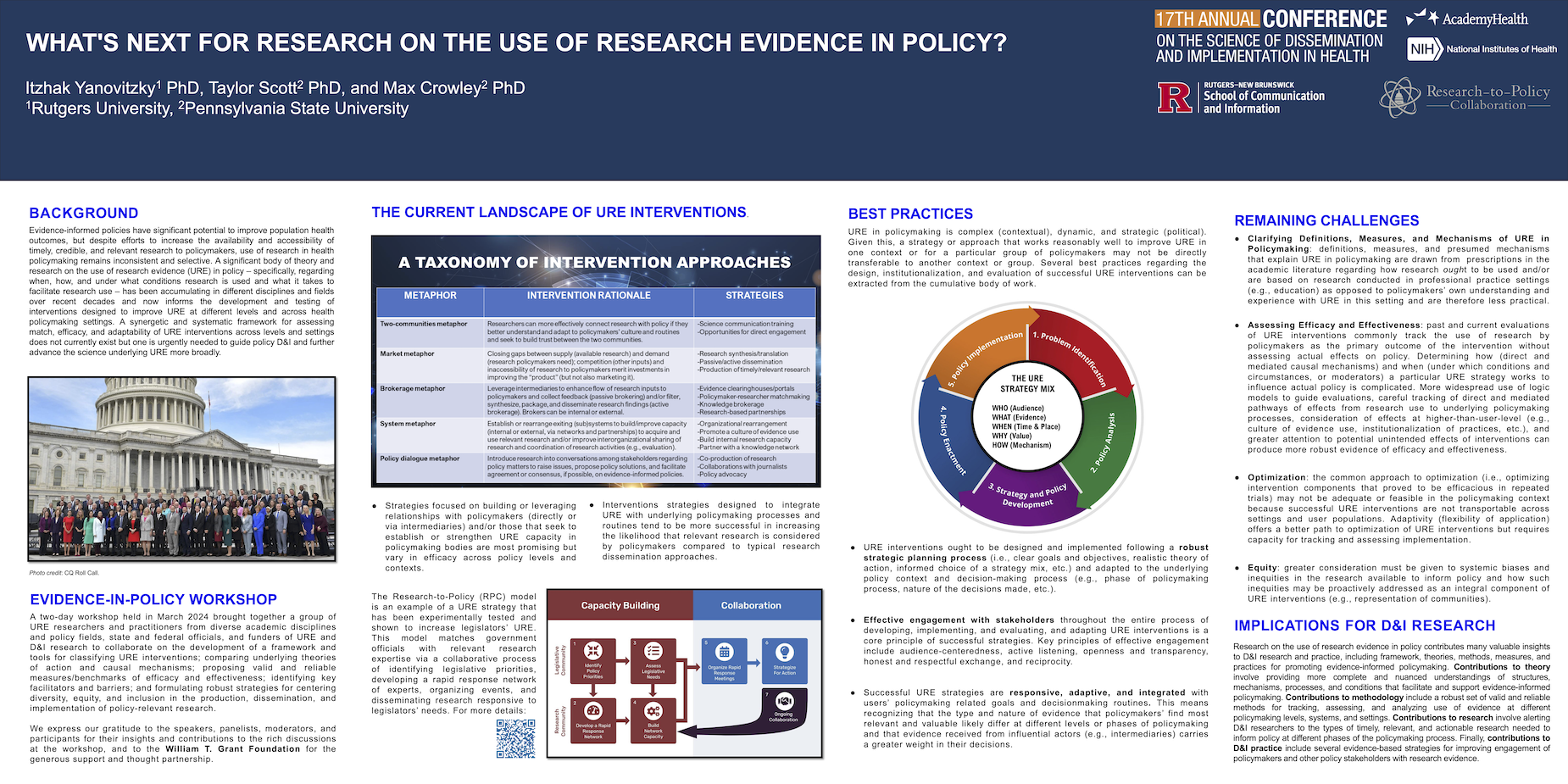The WTG Research to Policy Workshop (March 19–20 2024, US) focused on advancing the use of research evidence (URE) in policymaking through an actionable research agenda. The event underscored the importance of fostering stronger connections between research and policy, addressing the barriers to evidence use, and centering equity in policy-making. Discussions highlighted the need for collaborations among researchers, policymakers, and practitioners, as well as implications for equity within these partnerships. Ultimately, the workshop sought to develop frameworks that advance the science of how policymakers use research evidence. The workshop also emphasized institutionalizing evidence-informed policymaking through capacity-building, creating dynamic research-policy ecosystems, and leveraging existing system structures.

Key themes included refining URE definitions and measures, promoting equity-centered research, and fostering interdisciplinary approaches. Specific goals were to evaluate pathways for URE at individual, organizational, and system levels and to address systemic biases in research production and use. Practical strategies were proposed, such as training programs for research intermediaries, supporting partnerships, and developing methods for evaluating URE’s impact on policies and societal outcomes.
The closing session emphasized the need for long-term investments to expand the URE research pipeline and attract scholars from underrepresented disciplines. Suggestions included integrating URE concepts into higher education, encouraging mentorship, and collaborating with stakeholders to ensure actionable insights. The workshop concluded with a call for shared learning, enhanced collaboration, and sustained efforts to embed evidence use in policymaking.
Read the workshop report here.
Itzhak Yanovitzky (Rutgers University), Taylor Scott (Penn State) and Max Crowley (Penn State). Find out more about the workshop at https://evidence2impact.psu.edu/wtg-research-to-policy-workshop/.